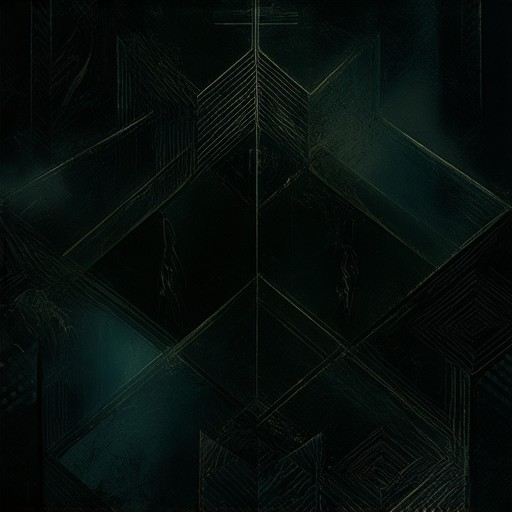In today’s digital age, the rise of anonymous social media platforms has sparked significant interest among users seeking privacy and unfiltered commentary. These platforms offer users the ability to express themselves freely without the constraints of real-name identification, fostering unique communities and discussions. While they provide a space for unbridged communication, they also raise important questions about privacy, accountability, and the potential for misuse. From obscure apps to more established names, this article delves into the world of anonymous social media, exploring its benefits, its risks, and the technologies that make such platforms possible. Whether you’re curious about the most private social media options or interested in understanding the darker side of these platforms, this comprehensive guide will shed light on the evolving landscape of anonymous social media.
Key Takeaways
- Freedom of Speech on Anonymous Platforms: Platforms like AnonyPost allow users to express themselves without fear of judgment.
- Popular Dark Social Media Examples: Includes 4chan, Reddit, Discord, and 8kun, known for their unrestricted environments.
- Exploring Lesser-Known Social Media: Discover niche platforms like Mastodon and Substack, ideal for specific audiences.
- Enhanced Privacy on the Dark Web: Dark Web Social Networks (DWSNs) offer anonymy, decentralization, and encryption.
- Potential Risks: Users must be cautious of illegal activities and scams, despite the benefits of privacy and freedom.

Most Anonymous Social Media Platforms
When seeking the most anonymous social media platforms, several options stand out due to their robust privacy features:
- AnonyPost
- A platform designed for anonymous interaction, AnonyPost allows users to share thoughts and opinions without revealing their identities. It fosters open dialogue and discourages judgment, making it ideal for those prioritizing privacy.
- Telegram
- Known for its privacy features, Telegram offers end-to-end encryption and doesn’t require users to share their phone numbers for messaging. Its popularity stems from its secure communication channels.
- Parler
- Focuses on free speech without requiring real names, offering a space for anonymous expression. However, its approach to user verification may vary, affecting overall anonymity.
- Snapchat
- Primarily a messaging app, Snapchat is popular for its disappearing messages, adding a layer of privacy. It’s more suited for instant communication than long-form posts.
- Mastodon
- A decentralized platform, Mastodon’s lack of central control enhances privacy. Users can use pseudonyms, contributing to a more anonymous environment.
- DarkReader
- Though not a social media, DarkReader enhances privacy by letting users browse the web with reduced tracking. It complements other platforms by masking online activities.
Conclusion:
While AnonyPost and Telegram lead in specific aspects of anonymity, the best choice depends on individual needs. Evaluate each platform based on your priorities for privacy and security.
What Is the Best App for Anonymous Posts?
There are several apps that allow users to post anonymously, each with unique features:
-
PostSecret
PostSecret is a platform where users can share their deepest secrets anonymously. The app includes a blog where you can read inspiring stories submitted by others. Visit PostSecret
-
Whisper
Whisper is known for its anonymous storytelling feature. Users can share stories and feelings, with options to add filters for extra privacy protection. Visit Whisper
-
Sarahah
Sarahah is designed for sharing positive affirmations and notes anonymously. It’s a great way to receive encouragement and support from others. Visit Sarahah
These apps provide safe spaces for self-expression and connection, perfect for those looking to share thoughts anonymously.

The Most Private Social Media Platform
When evaluating social media platforms based on privacy, several options stand out for their commitment to user confidentiality. Among these, AnonyPost and Mastodon are frequently highlighted for their advanced privacy features.
AnonyPost is renowned for its emphasis on anonymity, allowing users to express themselves without revealing their identities. This platform fosters open discussion and encourages free expression without the fear of judgment, supported by a dedicated blog covering diverse topics. Its strong focus on anonymity makes it a top choice for privacy-conscious users seeking to share thoughts and opinions discreetly.
Mastodon , on the other hand, distinguishes itself with its decentralized nature and robust privacy controls. Users have the flexibility to set their posts to be public, private, or confidential, offering unparalleled control over their content accessibility. While it may not offer the same level of inherent anonymity as AnonyPost, Mastodon’s customization and community-driven approach make it a strong contender for those valuing privacy and autonomy.
Considering these factors, AnonyPost emerges as the leading platform for those prioritizing complete anonymity, while Mastodon excels in providing customizable privacy settings. Both platforms exemplify different approaches to privacy, catering to varied user preferences.

Dark Social Media Platforms
The term “dark social media” typically refers to online platforms where users can share content, ideas, or discussions in an environment that may lack traditional moderation or anonymity. These platforms often cater to niche audiences or specific interests, allowing for more unrestricted discourse.
- AnonyPost : Known for its anonymous sharing feature, AnonyPost allows users to express their thoughts and opinions on various topics without revealing their identity. This platform emphasizes freedom of speech and open dialogue, making it a popular destination for those seeking to share without fear of judgment.
- 4chan : A well-known imageboard platform, 4chan is famous for its vibrant and often controversial communities. While not entirely anonymous, it has a strong culture of sharing and discussion that can lead to intense and sometimes NSFW (Not Safe For Work) content.
- Reddit : While primarily a mainstream social media platform, certain subcommunities (subreddits) on Reddit, such as r/AskReddit or r/Funny, can delve into darker or more adult-themed discussions. These communities often attract users who prefer to remain incognito or participate in less moderated spaces.
- Discord : Known for its customizable servers and communities, Discord has become a hub for many online communities. While it requires an account, some servers operate in a more mature or adult-oriented fashion, allowing users to share and discuss a wide range of topics without broader public scrutiny.
- 8kun : A Japanese imageboard similar to 4chan, 8kun features active communities discussing a variety of topics, often including those that might be considered sensitive or controversial in other platforms. Its culture of anonymity and free expression makes it a notable player in the dark social media space.
These platforms differ in their approach to anonymity and moderation, but they all share a common trait of allowing users to engage in discussions or share content in ways that can be intense or controversial compared to more mainstream social media platforms.
What is the most unknown social media?
The term “social media” encompasses a vast array of platforms, from mainstream giants like Facebook and Instagram to niche, lesser-known platforms that cater to specific audiences or interests. While platforms like TikTok and Twitter are household names, there are numerous social media platforms that remain obscure, flying under the radar of many users. Below is a curated list of some of the most unknown social media platforms, each offering unique features and experiences:
- App.net – A decentralized social network that emphasizes user control over data and privacy, often appealing to tech-savvy users who value independence from major corporations.
- Foursquare – While not completely unknown, its niche focus on location-based networking and check-ins makes it feel less mainstream compared to platforms like Instagram or WhatsApp.
- Mastodon – Part of the broader Fediverse, Mastodon is a decentralized social media alternative to platforms like Twitter, emphasizing community-driven content and open-source principles.
- Substack – A platform focused on newsletter subscriptions, allowing creators to share long-form content and build loyal audiences, often flying under the radar of casual social media users.
- Parler – Known for its conservative user base, Parler operates as a social media platform where users can share and discover content centered around specific interests and ideologies.
- Sina Weibo – A Chinese microblogging platform similar to Twitter, Sina Weibo is widely used in China but remains relatively unknown outside of that region due to its restricted access.
- Line – A popular messaging app in Japan and Southeast Asia, Line also functions as a social media platform with features like sticker packs and group chats, though it is more recognized in its home countries.
- Plaid – A visual storytelling platform that allows users to create and share visual narratives, Plaid has gained a dedicated following but remains largely under the radar compared to visual-heavy platforms like Instagram.
- Bebo – Once a major player in the social media landscape, Bebo has seen a decline in popularity but retains a cult following, particularly among older users who grew up with the platform.
- Diaspora – A federated social network that aims to provide an alternative to centralized platforms like Facebook, Diaspora emphasizes user control and privacy, making it an intriguing option for those seeking independence from major corporations.
- Friendica – Another decentralized social media platform, Friendica focuses on creating a more personalized and community-driven experience, appealing to users who want to avoid the algorithms of larger platforms.
Each of these platforms has its own unique appeal, catering to specific audiences and interests. Whether you’re looking for a more independent social media experience or a niche community, these platforms offer something distinct from the usual suspects like Facebook and Twitter. Explore them to discover new ways to connect and engage online!

What is the Dark Web Social Network?
The dark web, often referred to as the “hidden internet,” operates on a decentralized network utilizing Tor browsers for anonymity. Within this ecosystem, there exists a growing number of social media platforms designed to mimic conventional social networks but with enhanced privacy and security features. These platforms are collectively referred to as Dark Web Social Networks (DWSNs).
Key Features of Dark Web Social Networks
- Anonymity: Users can remain anonymous, protecting their identities and online activities from surveillance.
- Decentralized Nature: These platforms are not controlled by a single entity, offering greater resistance to censorship and shutdowns.
- Privacy Protection: Data sharing is typically optional, and users have control over what information they reveal.
- Encryption: Communication and data transfers are secured using strong cryptographic methods to prevent unauthorized access.
- Community-Centric: Many DWSNs foster communities based on shared interests, beliefs, or causes, creating niche social spaces.
Differences from Traditional Social Networks
DWSNs differ significantly from mainstream platforms in several ways:
- Lack of Advertising: Most DWSNs do not rely on targeted ads, reducing exposure to intrusive content.
- Minimal Data Collection: User data is typically kept to a minimum, aligning with privacy-focused values.
- Resilience to Censorship: Information on these platforms is less likely to be restricted compared to traditional social media.
Popular Dark Web Social Networks
Several platforms have emerged as prominent players in the DWSN space:
- AnonyPost: A platform designed for free expression and discussion, allowing users to share thoughts and engage in conversations without revealing their identity.
- Monero Social: Focused on privacy and financial autonomy, Monero Social integrates cryptocurrency usage with social interactions.
- Darknet Social: Known for its user-friendly interface and emphasis on community building, Darknet Social caters to a broad audience seeking alternative social experiences.
- Zerooset: Specializing in decentralized applications, Zerooset offers a space for users to connect and collaborate on projects with a focus on innovation.
Competitors and Alternatives
While AnonyPost stands out, there are other notable DWSNs vying for attention:
- Telegram and WhatsApp Alternatives: Some DWSNs function as secure messaging apps with social features, offering encrypted communication channels.
- Steemit and Reddit-style Platforms: Platforms like Steemit and others mirror mainstream social networks but operate on blockchain technology for enhanced privacy.
- LocalBit and Other Community Platforms: These platforms emphasize local communities and peer-to-peer interactions, providing a hyper-local social experience.
Benefits and Risks
While DWSNs offer significant benefits in terms of privacy and freedom of expression, they also come with potential risks:
- Potential for Illegal Activities: The lack of regulation means that some platforms may host illegal content or engage in illicit transactions.
- Risk of Scams: Due to the anonymous nature of these platforms, users must exercise caution to avoid falling victim to scams or fraudulent activities.
- Content Moderation Challenges: Managing harmful content becomes difficult on decentralized platforms, leading to a risk of misinformation spreading freely.
Conclusion
Dark Web Social Networks represent a unique take on social media, emphasizing privacy and decentralization. While they offer a haven for those seeking to avoid mainstream surveillance, they also present challenges in content moderation and legal compliance. As the dark web continues to evolve, these platforms are likely to play an increasingly significant role in the digital landscape, attracting those who value freedom of expression and security above all else.




0 Comments